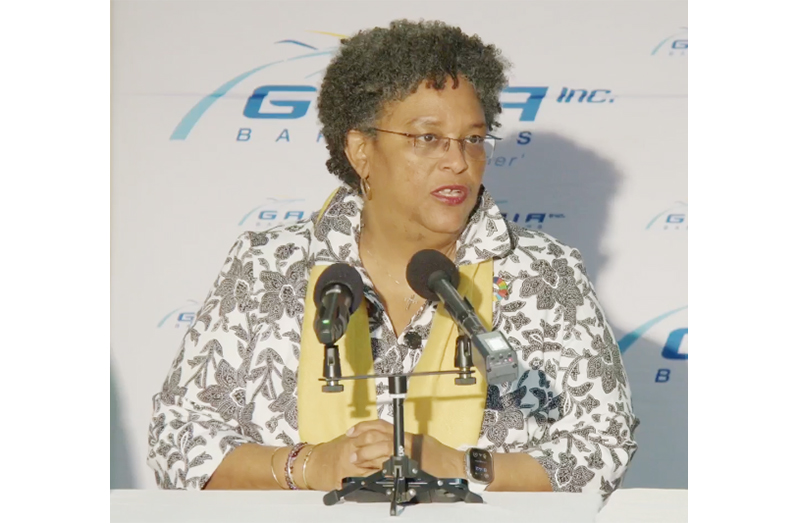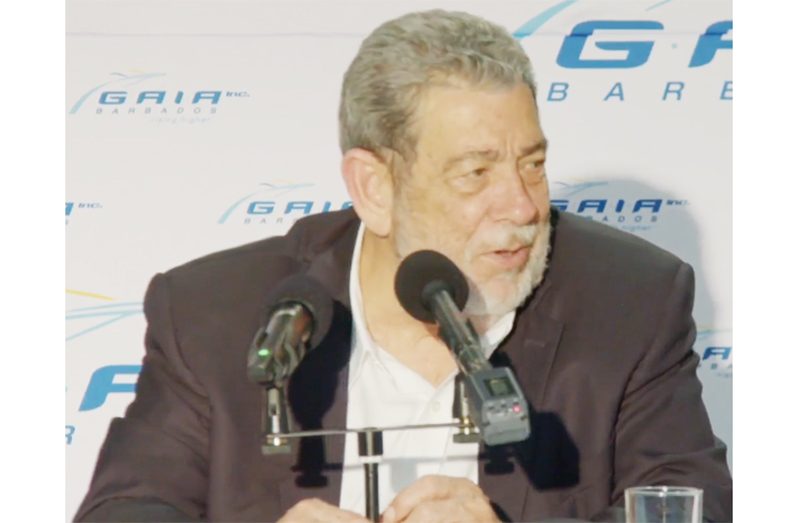–St Vincent PM says; Prime Minister Mottley reaffirms that the country’s firm position is supported by the region
PRIME Minister of St Vincent and the Grenadines, Ralph Gonsalves, over the weekend, said that the Caribbean Community (CARICOM) has always been in support of Guyana’s territorial integrity.
The Prime Minister made those remarks during a joint press conference with Barbados Prime Minister, Mia Mottley, in Barbados.
According to Gonsalves, the ongoing controversy between Venezuela and Guyana is an old one, noting that Guyana bases its position on the 1899 Arbitral Award.
Gonsalves said: “CARICOM has always defended the territorial inviolability of Guyana.”
Meanwhile, Prime Minister Mottley said that CARICOM has issued a very strong statement in support of Guyana.
She said that while she stated some weeks back that in spite of the controversy, Venezuela is a friend of the region as well, so she would wish to see the region remain one of peace.
Mottley related that this statement has excited condemnation; however, she added: “I have come to public life to promote peace not division.”
She went on to add that Guyana’s position has been strong and unwavering, and this position has been one that is backed by the region.
Mottley said they understand that where there is “not the appropriate opportunity to keep temperatures down, things can happen that go beyond control.”

However, she expressed confidence in Gonsalves as chairman of the Community of Latin American and Caribbean States (CELAC) and the chairman of CARICOM to work towards ensuring the region remains one of peace.
The genesis of the border controversy traces back to the 1899 Arbitral Award, a landmark decision that delineated the land boundary between British Guiana (now Guyana) and Venezuela.
However, despite the historic arbitration, tensions have persisted, with Venezuela repeatedly challenging the validity of the award.
In 2018, Guyana took a decisive step by approaching the ICJ, seeking affirmation of the 1899 Arbitral Award’s legitimacy.
Venezuela, taking a defiant stance, initially claimed the ICJ lacked jurisdiction, a contention flatly rejected by the international court in a crucial ruling in December 2020. The door was thus opened for the ICJ to delve into the substantive case’s merits.
Recent developments have heightened the geopolitical situation, as Venezuela, through its National Electoral Council, unveiled plans for a “Consultative Referendum” on December 3, 2023.
Guyana contends that this move is a thinly veiled attempt by Venezuela to gather support for abandoning the ongoing ICJ proceedings, and unilaterally assert control over the Essequibo region.
In response, Guyana swiftly approached the ICJ, seeking urgent provisional measures to prevent any actions by Venezuela that could jeopardise the status quo until the court reaches a final verdict on the matter.
The ICJ is expected to rule on Guyana’s request for provisional measures to prevent Venezuela from proceeding with its planned referendum on the Essequibo. Meanwhile, the substantive case, highlighting the historical context and the 1899 Arbitral Award, remains before the court.



.jpg)








